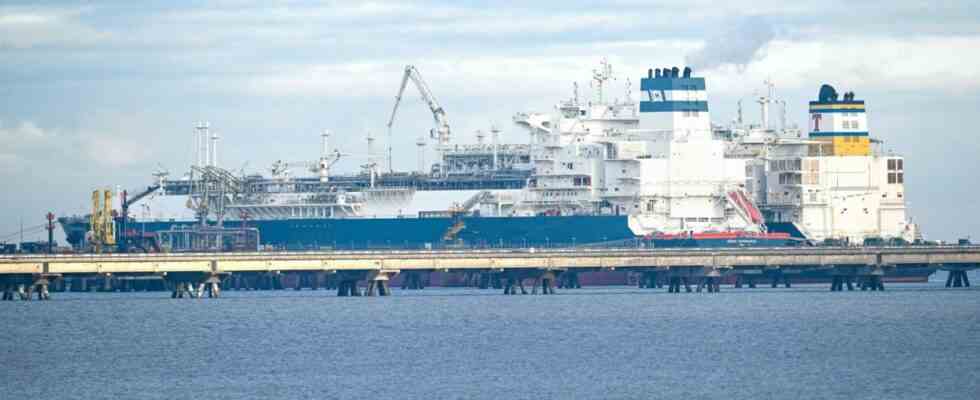A ship is coming to Wilhelmshaven, loaded with valuable cargo. Maria Energy is the name of the full tanker that delivered liquefied natural gas to the floating terminal on the North Sea coast of Lower Saxony this Tuesday. According to the operator Uniper, the gas is enough to supply 50,000 households with energy for a year. The tanker was even escorted by the police on the last few meters to the terminal. It is the first fully loaded tanker since the LNG terminal opened in mid-December.
At that time, Chancellor Olaf Scholz had traveled there and made it clear how important the whole thing was, namely the highest: “This is the new pace in Germany, with which we are advancing infrastructure, and it should be a role model, not just for this plant, but for more for many, many others,” he said, alluding to the fact that the terminal in Wilhelmshaven was built in just under ten months. This was made possible by a corresponding law: In this case, construction may begin before all approval procedures have been completed.
The fact that things are now supposed to happen very quickly has to do with the energy shortage, a consequence of the Ukraine war. The import of liquefied natural gas (LNG) to Germany is intended to secure future gas supplies without Russian imports. In Wilhelmshaven, for example, the almost 300 meter long special ship Hoegh Esperanza the delivered liquefied natural gas is converted back into the gaseous state. It will then be fed into the German grid. When it arrived in December, the special ship already had a load of LNG on board.
In addition to the floating terminal in Wilhelmshaven, further terminals are to be built in Germany by the end of this year, one each in Brunsbüttel (Schleswig-Holstein), Stade (Lower Saxony) and Lubmin (Mecklenburg-Western Pomerania), and another in Wilhelmshaven.
In the future, liquefied natural gas will also come from Qatar
While liquefied natural gas is seen as a quick fix to the energy crisis, it is controversial. After all, LNG is also a fossil fuel, replacing natural gas from Russia. Germany is thereby making itself independent of the war-mongering state, but not of other countries. In the future, liquefied natural gas will also come from Qatar. In addition, in 2045 Germany must not emit more greenhouse gases than it saves. That’s how it writes the Climate Protection Act before. Environmental and climate advocates therefore believe that the expensive terminals for a fossil fuel conflict with this and make compliance impossible. One Study by the New Climate Institute also showed that the planned massive expansion of LNG is not necessary for Germany’s energy supply.
On the tanker’s liquefied natural gas Maria Energy But there is another point of criticism: The cargo comes from the USA and was obtained with the help of the controversial fracking method. The German Environmental Aid condemned the import on Tuesday: “The fact that Germany is buying fracking gas directly from the USA for the first time today is no reason to be happy, but a historic low blow for climate protection and nature conservation.” Environmentalists wanted to protest the arrival of the LNG tanker in the evening.

